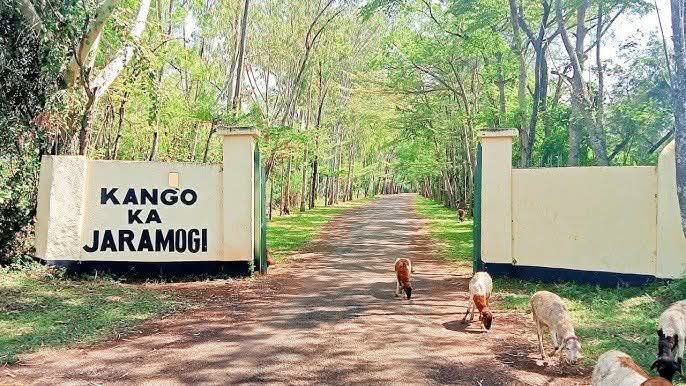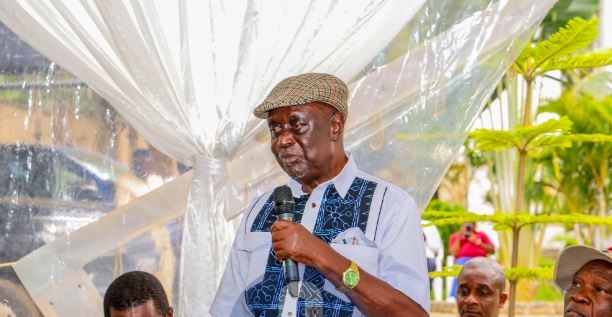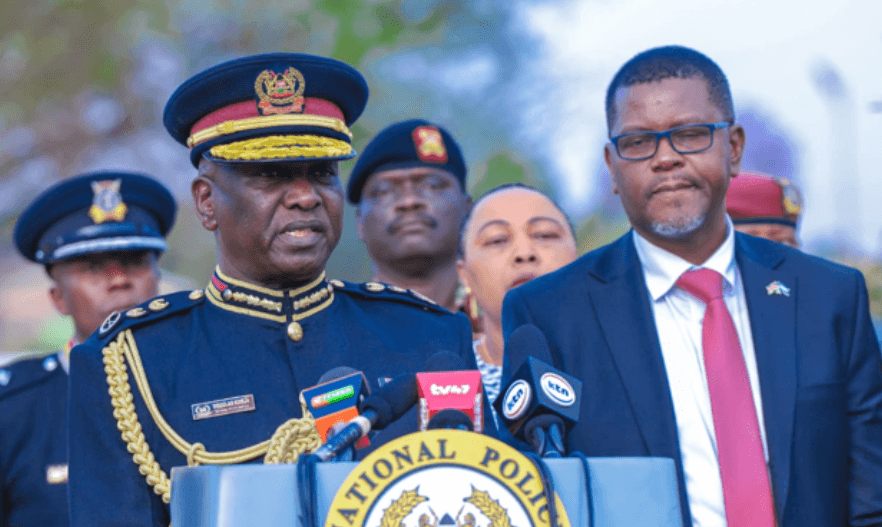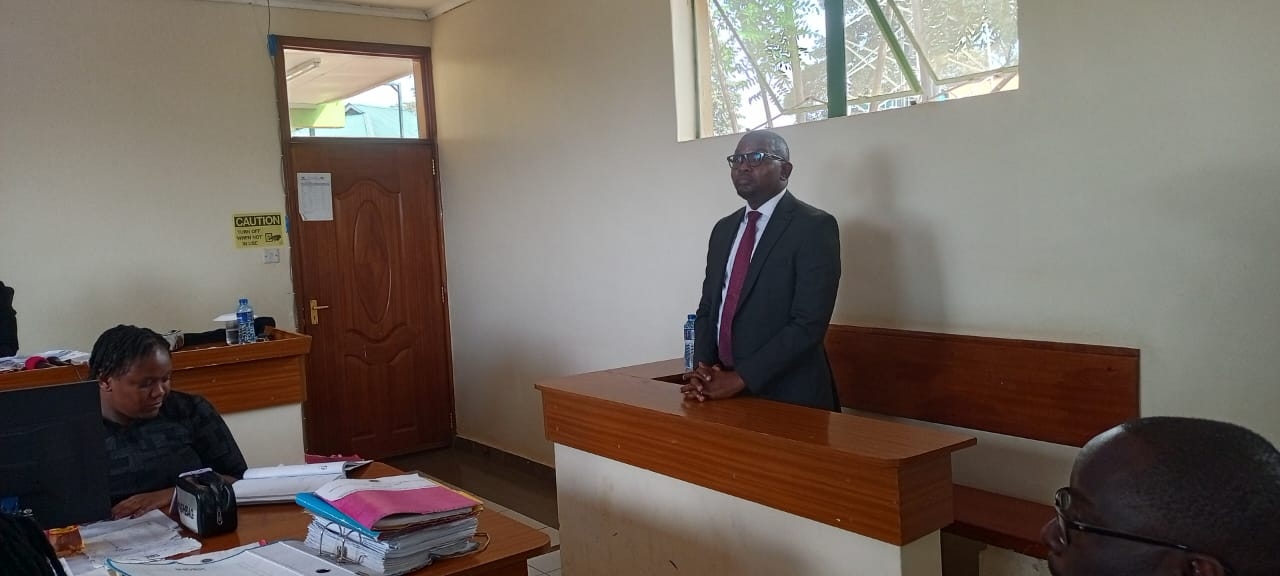Life at Bonje Creek in Kinango, Kwale county is visible again as small green mangroves are burgeoning after years of destruction.
The weather is friendly, the lost cool breeze is slowly returning to normal.
Birds of various species have rebuilt their homes and can be heard chirping deep in the rehabilitated mangrove forests, while crabs bump in and out of the small holes of the beach and the entangled mangrove roots.
Two years ago, the land was an eyesore, about 115 hectares was left bare due to natural calamity and destructive human activities.
The remaining small stumps of drying and decaying mangroves describe the reality of the disaster.
The 1997, 2007 and 2017 El Nino downpours had no mercy on the Bonje mangroves and thousands were destroyed by the raging floods that overflowed from the River Mwache.
Excessive tree-cutting by residents for construction and wood fuel further aggravated the situation.
For several years, the land turned into a desert and the residents felt the pain of their unfriendly livelihood activities.
Mangroves provide breeding grounds for fish and act as a buffer against storms, erosion and floods. They also purify the air five times more than the terrestrial forests as they store more carbon.
To mitigate the effects, a group of community conservancies in Bonje came together and partnered with WWF-Kenya, Kenya Forest Services and Kenya Marine and Research Institute to restore the degraded mangrove forest areas.
The energetic community members which comprise fisherfolks and fishmongers grow the mangrove seedlings and plant them to reduce the negative effects of climate change.
"Fish numbers had dwindled, the environment was very bad and our livelihoods were highly affected to the point of despair and even death that's why we took the initiative," Bonje BMU and Community Forest Association chairperson Saidi Juma said.
He said so far they have restored about 83 hectares of the lost mangroves and they have 315, 000 more mangrove seedlings that are yet to be planted in the remaining areas.
The group has 1200 members.
Juma said they assist in the natural regeneration process adding that once mangroves grow water gets in and supports the marine ecosystem.
In a week they spare about three days to plant mangroves.
He said since the project started in 2018, hope for the fish-dependent community has been revived greatly.
Previously, some residents had cut their losses and left the area as they sought alternative sources of livelihood elsewhere because the fish catch had significantly dropped and other income-generating activities were compromised because of the recurrent ocean calamities.
Juma said the land is not suitable for farming due to ocean floods and prolonged drought that hit most parts of Kwale county.
The environment enthusiast said they aim to achieve socioeconomic and environmental gains through sustainable conservation.
He said through the initiative, WWF buys seedlings from the community which they use to restore the mangroves.
The organisation also provides stipends to the CFA members during the mangrove planting period to support them since most are unemployed and depend on unproductive fishing.
Juma said as a way of enhancing conservation, the group converted some of the lands to fish ponds where they rear marine tilapia, mborode fish and prawns.
"To avoid tampering with the conservation efforts we had to come up with alternative sources of livelihood to sustain us as we protect the environment," he said.
The chairperson said they now rely on fish pond farming to give time for nature to regenerate and reduce overfishing which is very harmful.
They also received sponsorship from the American Embassy to run the Sh1.2 million fishpond project where KMFRI provides the necessary skills and support in managing it.
Bonje BMU secretary Mariam Konde said the mangroves restoration programme has completely changed their lives.
She said the initiative has instilled some sense of responsibility and created employment opportunities for the jobless youth.
Konde said they get to sell the mangrove seedlings and fish which earns them money to provide for their families.
"Conservation is part of our livelihood programme now because with it we get to feed our families," she said.
She said the project has enabled many community members to embrace conservation and realise there is more benefit in protecting nature.
Konde said the project has revamped security in the area as more youth venture into conservation and use their energy to foster change.
The secretary said the mangroves restoration initiative has brought joy to their life as the environment is regaining its natural state.
She said they are betting on the project to play a big role in mitigating the effects of climate change and improving lives.
Konde further said they are optimistic that the future of women and children in the area will be much better once the project becomes successful because they are the ones mostly affected by climate change.
She is glad that they can now eat at least three meals a day compared to life before the project.
Deputy Bonje BMU secretary Kasim Mwichande Mkolo said fish catch and crabs are increasing, a sign that the project is bearing fruits.
Mkolo said they started the project with very little knowledge of what they were supposed to do but with help from WWF and KFS, residents were educated and sensitised against the effects of climate change.
However, he said the project comes with some challenges as some community members due to ignorance sneak in and cut the mangroves derailing their conservation efforts.
But Mkolo said the CFA in partnership with the KFS is hunting for the culprits and the suspects caught are arrested and taken to court.
WWF Terrestrial coordinator Mohammed Pakia said they are supporting the community through the International Climate Initiative project.
The project seeks to empower and equip the community to restore and protect the environment which includes forests.
He said in Kwale they are helping communities to improve the status of more than 30,000 acres of forests.
Pakia said they normally train community rangers to assist KFS officers in protecting the forests and capacity-building the residents in doing sustainable farming.
"We educate the forest bordering communities, equip them with business and farming skills to reduce the burden on natural resources," he said.
He said they train the residents in butterfly farming and beekeeping among others ventures.















